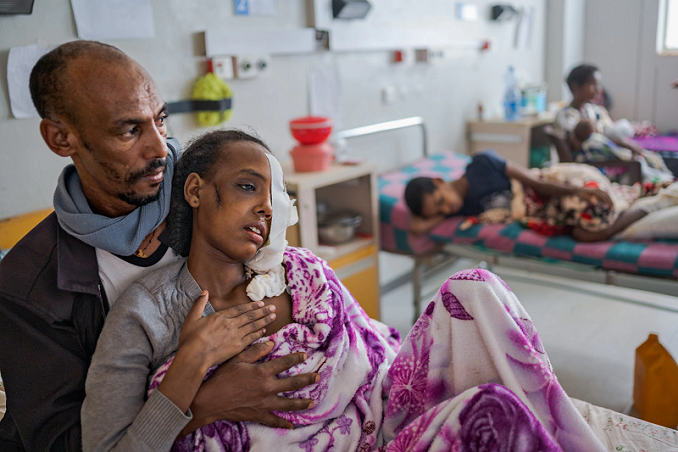![]() Tigray – Tigray conflict is not nearing an end and the consequences of humanitarian crisis are being borne by the civilians in Ethiopia’s Tigray region. The conflict between the Ethiopian government and TPLF (Tigray People’s Liberation Front) is in its 16 months and there is no sign of respite as the fight continues to drag on. The conflict is hampering supplies shortage, leading to patients dying as medics struggle amid supply and fuel shortages and frequent electricity blackouts. The northern region of Ethiopia, Tigray, which houses 5.5 million people is continuing to suffer under “de facto blockade” as called by the United Nations.
Tigray – Tigray conflict is not nearing an end and the consequences of humanitarian crisis are being borne by the civilians in Ethiopia’s Tigray region. The conflict between the Ethiopian government and TPLF (Tigray People’s Liberation Front) is in its 16 months and there is no sign of respite as the fight continues to drag on. The conflict is hampering supplies shortage, leading to patients dying as medics struggle amid supply and fuel shortages and frequent electricity blackouts. The northern region of Ethiopia, Tigray, which houses 5.5 million people is continuing to suffer under “de facto blockade” as called by the United Nations.
“Patients die. Every day we hear about patients dying because of a lack of oxygen, a lack of this drug, that drug,” a doctor at the Ayder referral hospital in Mekelle, the regional capital, said.
Internet connectivity is a rarity too in the region. Taking the opportunity of one such instance, the doctor connected with The Guardian. He told of talking to doctors from the northern town of Adwa who told him that their hospital had “survived looting and destruction” during the early months of the war, and now it was struggling to keep infants alive. “They said: patients are dying because of a lack of oxygen, a lack of electricity and they cannot keep the babies breathing. The machines are failing. So they were asking for help but we told them we cannot do anything,” he said.
Related Posts
The World Health Organization has not been able to supply essential aid and supplies to Tigray from July last year up till last month. Doctors and aid workers say that even though the supply has resumed now, the needs of the population are too huge currently and they are nowhere near to fulfilling the demand gap after months-long shortage.
There is a chronic fuel shortage in the Tigray region which is now taking a toll on the hospitals. A major crisis is diesel generator which is to be used amid frequent electricity shortages – it requires about 2000 litres of fuel to run for 24 hours. “That has become impossible,” said the doctor. “So we’re trying to use very small generators that can use a small amount of fuel and even that is becoming a real problem. So again, downsizing the service, day by day, that’s what we’ve been doing.”
“Cancer patients are really suffering,” the doctor said. “We ask them to wait and wait and they keep on coming back, especially now [some] drugs are coming to Mekelle and almost everyone ran to the hospital asking if their drugs arrived.”
The doctor said no more diagnostic tests available at the hospitals now. “We cannot make a diagnosis of HIV in children. So care is significantly compromised,” he said. “Without treatment, up to half of infants infected with HIV die within their first two years.”

